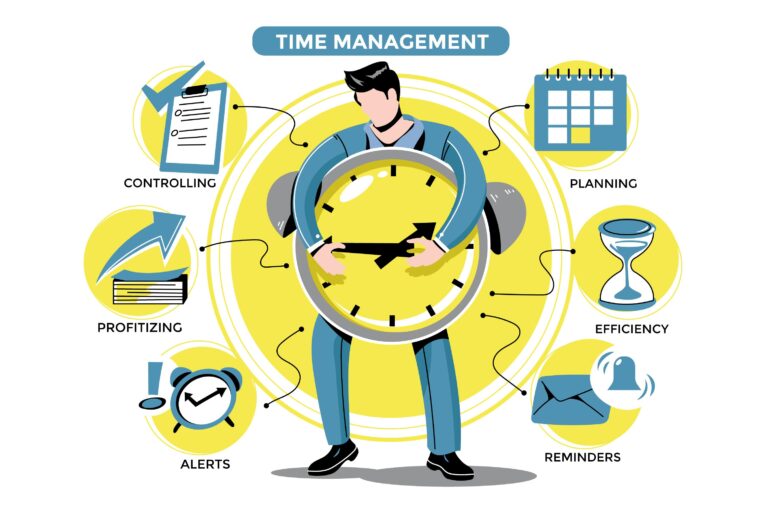Ph.D. Viva: Best Tips for Passing Ph.D. Viva Voce
Although your Ph.D. thesis writing is a huge accomplishment, a Ph.D. scholar’s journey does not end there. There may be multiple revisions after the grammar, spell check, language, sentence construction, flow, editing, and reviewing. After submitting, you must prepare for the next challenging intellectual test to defend your thesis, a Ph.D. viva.
Officially called the Ph.D. viva voce, meaning ‘living voice’ in Lati. The Viva is an oral examination that sees a Ph.D. scholar defend their thesis and showcase their knowledge to a panel of academic experts.
After completing your thesis presentation, known as the Ph.D. viva presentation, you will be asked a series of questions by these experts to make sure you have mastered your topic and understand your work.
Also Read: How to cope with failure at the Ph.D. entrance exam
How Long Does a PH.d. Viva Last?
A Ph.D. viva voce might last from one to three hours, though with no defined duration. A longer viva does not necessarily indicate any problems with your research; it may simply be that the examiners find keen interest in your research and are enjoying the discussion.
Equally, a shorter viva may just mean that your examiners are satisfied with the research and your responses to their questions. (If you need guidance related to Ph.D. Viva. Schedule a FREE consultation and get your queries answered. CLICK HERE to Schedule.)
Things to keep in mind before the Ph.d. Viva
Ph.D. Viva’s are typically public affairs, where you make a PowerPoint presentation outlining your research study and then discuss it with a panel of examiners (opponents).
Regulations for the Ph.D. viva will vary depending on the university or Institute. It is essential to adhere to the university guidelines. The Ph.D. viva voce is pre-planned and communicated in advance through a letter or notice that will be displayed or circulated. An open defense notice mentions the research topic, date, time, venue, name of the scholar, and supervisor/guide/s is mentioned. The viva voce may be held online or in person. The link to join the open defense of viva voce is also displayed for those interested in attending. The audience can ask questions, as can your examiners.
Here are some other tips to keep in mind before the Ph.D. viva:
- Re-read your thesis. Keep up-to-date with research. Check to see if any relevant recent research papers have emerged since submitting the thesis, and if so, read them (even if does not form part of your Review of Literature) and keep them updated. Feel free and do not be afraid to ask for PhD research guidance before your Viva.
- Highlight potential questions. If you have opted for thesis writing services, remember to re-read, annotate, and highlight the text as you go so you can find important results when called on to do so.
- Take mock Viva’s. Your supervisor or PhD entrance coaching experts should offer to conduct a mock viva with you shortly before the real exam. It helps with time management and clarity, cutting unnecessary duplication and focusing on the most relevant aspects.
They will ask the questions an examiner might have about your thesis. You can anticipate the expected and be better prepared. You can practice answering and discussing them clearly and in a crisply.
What Happens During a PH.D. Viva-voce?
Regardless of the subject area, all Ph.D. Viva-voce follows the same examination process format as below:
- Introduction – The chairperson, research committee, or the internal examiner will typically present the external examiner. The Internal examiner who has been your supervisor will introduce you, or you will be asked to introduce yourself. You will then give an introduction of your study topic, objectives, methodology, approach, and summary of the key research findings. Make sure to grab the interest of your audience from the start.
- Warm-up questions – After that, the examiners will start asking questions. Typically, this begins with a few straightforward questions, including asking you to briefly describe your Ph.D. thesis and the reasons for your decision to conduct the study.
- Present your research findings and data analysis, illustrating key patterns, trends, and insights.
- Subject-specific questions – As the examiners delve deeper into the specifics of your thesis, the viva questions will get challenging. These could include “How do your findings impact existing theories or literature?”
“Do your findings agree with the current published work?” and “What was your most important decision when determining your research methodology?”
You will be asked specific questions concerning the technique, theories used, methodology adopted, research tools, findings, and analysis that form the basis of your thesis, as well as open-ended ones.
Examiners will want to know how your research findings will impact. Think of the economic, social, and environmental impact that your research can make. Examiners may also express ethical concerns. - Concluding and summarizing – At this stage, think critically about your findings, their significance, and possible directions for further investigation. Respond to any counter questions or different views. After summarizing your presentation key ideas, present a strong closing statement as a conclusion.
The oral examination will end when the examiners are satisfied that they have fully assessed your knowledge and thesis, and you will be allowed to ask any questions you may have.
Tips for passing your Ph.D. Viva voce
- Anticipate the Ph.D. viva questions
You should be fine with the questions the examiners will have prepared for you to respond to during the viva voce.
All the questions will centre on your thesis, including its purpose, research, and the significance of your findings in your field of study.
Even though it can seem easy, respond only to the questions asked. Be specific and convincing. It is simple to get off the topic, which may lead to more questions from the examiners, perhaps in topics you are unprepared for. Most Vivas are “open-book,” meaning you can bring reference materials with you as well. - Listen and answer carefully.
Take time to answer questions; instead, pay close attention to what is being asked. Ask for clarification of the question to ensure that you understand it correctly. Be honest if you truly are unable to respond to a question. - Know what you are there for
It is easy to become preoccupied with viva preparations and lose sight of the main goal: why you pursued a Ph.D. in the first place.
Remind yourself that a Ph.D. is about understanding your area, contributing meaningfully, acquiring the right techniques, and being aware of their limitations before you become overwhelmed by your Viva. This will allow you to answer questions with depth and understanding.
Also Read: How to Get a Ph.D. in India
After your PH.D. Viva
A Ph.D. viva might have several results. Although they may occasionally request more extensive work, your examiners will typically advise your institution to give your degree after minor revision in the thesis and a definite period. Accept the comments and suggestions from the external examiner and other experts.
If you’re feeling nervous, book a MOCK VIVA session with me. It will boost your confidence and give you a clear understanding of the process. CLICK HERE TO BOOK
When making revisions, put your thesis aside and consider yourself as an editor evaluating someone else’s work. See the Viva as a significant milestone in the Ph.D. process. However, keep going on your work and enjoy the experience!






